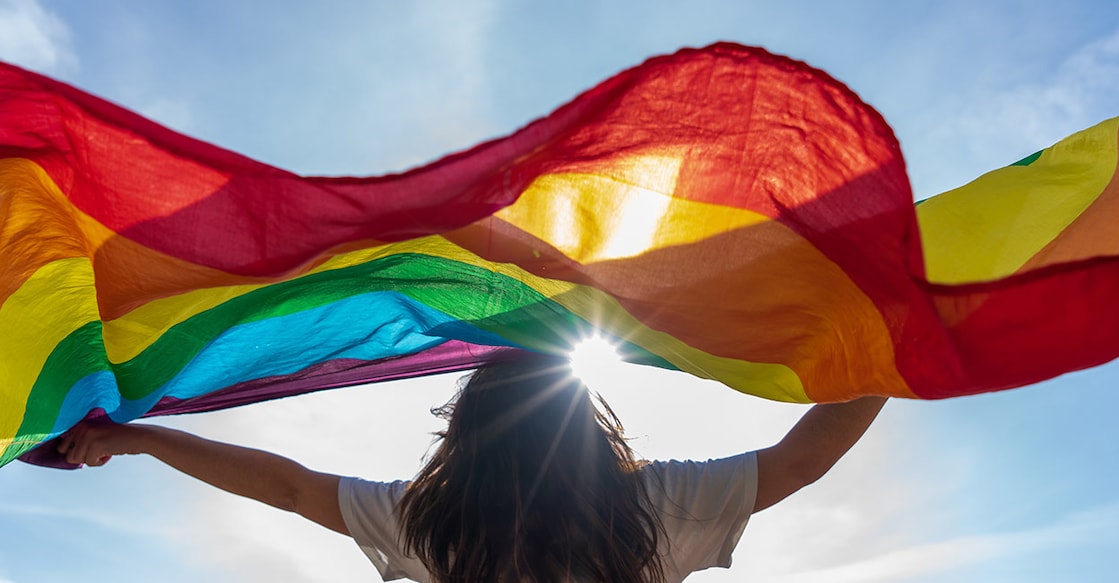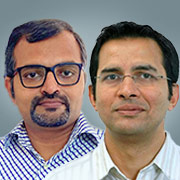Column | Time to rethink our vocabulary on homosexuality

Mail This Article
Jeo Baby’s movie ‘Kaathal-The Core’ has achieved notable success in theatres and on OTT, earning praise from critics worldwide. The Malayalam film industry usually has a strong preference for stories based on traditional family norms, and it is rare for a family drama with a homosexual theme to receive positive acclaim at the box office.
The triumph of a film deviating from the conventional heterosexual family framework sparks broader questions about contemporary society in Kerala. Can the positive reception of 'Kaathal-The Core' be viewed as an indication of society becoming more open to accepting homosexuality as a personality trait rather than an aberration?
Persisting Orthodoxy
In the past, psychiatry classified homosexuality as a ‘sociopathic sexual disorder’ for clinical purposes. The American Psychiatric Association removed homosexuality from its manual of mental disorders in 1974. Starting with the Netherlands in 2001, many European countries legalised same-sex marriages. However, despite medical and legal acknowledgement, a prevailing orthodoxy regarding homosexuals persists globally, and Kerala is no exception.
While Kerala is often lauded as the ‘most socially advanced state in India’, a significant segment of its society stigmatises and stereotypes homosexuality. Even after the dawn of the new century, Malayalis used to perceive the daily lives of homosexual individuals solely through the lens of sexual perversion.
One of the authors was witness to a student joke about homosexuality at a prominent social science research institute in Kerala during 2005-06.
The institute had an unmarried professor who was educated in Europe and known for captivating lectures. It was said that he was ‘gay’. The professor, at times, agreed to students' offers for a backseat bike ride to the city centre when his preferred choice, the auto-rickshaw, was unavailable. It was common for friends at the institute to poke fun at the student who offered the ride by saying that the professor derived erotic pleasure from such bike rides. Despite being recognised as one of the most refined individuals with no reports of any wrongdoing, the soft-spoken professor was occasionally ridiculed by students simply because of his so-called homosexual orientation.

Homosexuality is often viewed by Malayalis either as a sexual deviance or a twisted identity – seen either as a child abuser or a harasser of the ‘straight’, or as a jester copying the opposite gender, as depicted in Dileep’s role in the movie 'Chanthupottu'. This mistaken understanding is well reflected in the way language and vocabulary are used in everyday discussions about homosexuality.
In popular usage, the Malayalam terms 'swavargalaingikatha' and 'swavargarathi’ commonly imply an erotic relationship between the participants. Although there is another term, ‘swavarganuragam,’ referring to the romance between two individuals of the same sex, it is also usually used with erotic connotations. One might also come across some colloquial expressions that are derogatory and directly refer to genitalia in various parts of the state.
On the contrary, heterosexual relationships are often portrayed in a non-erotic, platonic manner in Malayali popular culture. An excellent illustration is found in Kumaranasan's famous lines, ‘Mamsanibadhamalla ragam,’ conveying that ‘Love is not carnal.’ The erotic portrayal of heterosexual relationships, as seen in the case of B-grade movies, is considered lowly.
Promising Youth
What is remarkable is that Kerala is currently experiencing a generational shift in attitudes towards homosexuals and other LGBTQ+ communities. By and large, the younger generation in Kerala is not interested in stereotyping or stigmatising people for their sexual orientation.

“Ours is a social media-savvy generation, very much influenced by a liberal outlook on things. More than generating awareness about different sexual orientations, social media has created a sense that homosexuality is not just about ‘sex’ but more about a romantic affair between two adults. Today’s youth are more open to discussing taboo subjects than ever before," says Arundhathi Radha C.S, a former chairperson of All Saints’ College Student Union, Thiruvananthapuram.
Recent years have witnessed quite a few same-sex marriages in Kerala that went viral on social media with their romantic photo shoots. Last year, the pregnancy photo shoot of the transgender couple Ziya Paval and Zahad was positively received on social media platforms, and the event was covered by the BBC.
Notably, when speaking to the media, gay and lesbian couples in Kerala emphasise that their relationship extends beyond the erotic aspect. In an interview, the much-celebrated gay couple of Kerala, Nived and Rahim, affirmed that they have a romantic relationship and that sexual drive is just one component of it, similar to any straight couple.
Unfortunately, while the youth have a liberal, scientific approach towards LGBTQ+ people, the Malayalam language has not evolved enough to reflect these changes.

Lack of Vocabulary
Nowadays, some people find the English term 'homosexual' itself outdated and offensive. Instead, it is recommended to use terms like gay, lesbian, bisexual, or LGBTQ+ depending on the context.
Heterosexual and homosexual relationships should not be treated differently by an ‘advanced society’ like Kerala. There is an urgent need to detach homosexuality from erotic connotations and to discover an innovative way of referring to homosexual individuals in the Malayalam language. Similar to the introduction of 'gay' and 'lesbian' in English, new Malayalam terms are essential for everyday usage.
Research has shown that vocabulary and language structure reflect the outlook and development of society in many aspects. Creating an entirely new, respectful lexicon for homosexuals would be a tangible step, indicating a society that values a scientific understanding of things.

The positive reception of the movie 'Kaathal-The Core' is a clear indication that Kerala society is ‘maturing’, and the time has come to embrace a more inclusive and progressive vocabulary related to homosexuality in Malayalam.
(Social anthropologist and novelist Thomas Sajan and US-trained neurologist Titto Idicula, based in Norway, write on politics, culture, economy, and medicine.)


